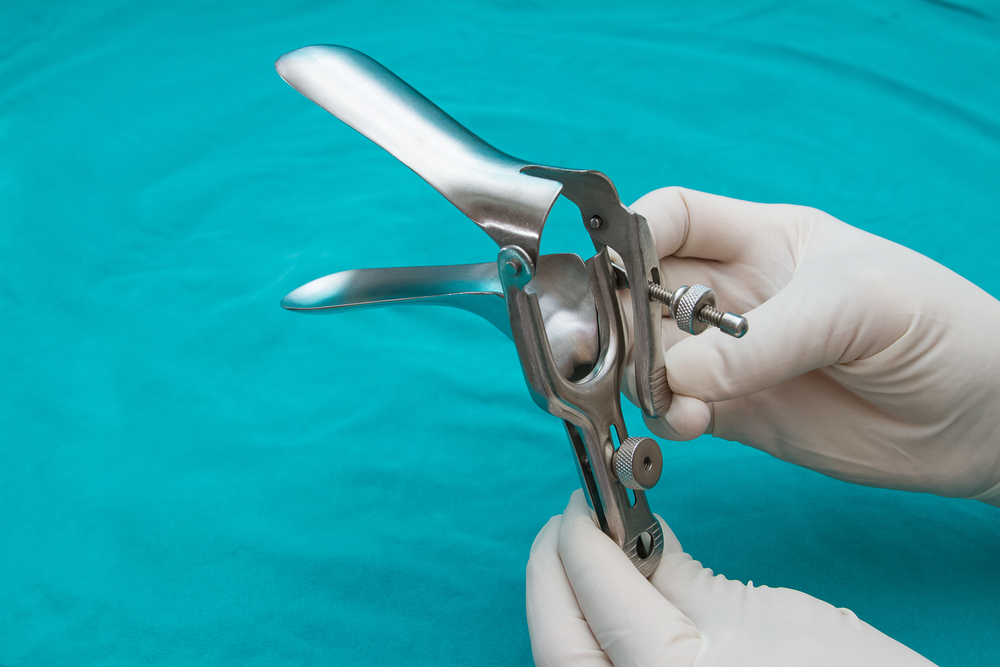Top 3 Myths About Ovarian Cysts
Published on 10/24/20
There can be a lot of misinformation out there that can result in confusion on what are the true effects of ovarian cysts in a woman’s reproductive system. One of the many things we as women have in common is the development of ovarian cysts. Whether it be a few times or many times, if you speak to a family member or friend, chances are, at some point in their life they have had or been diagnosed with an ovarian cyst.
During our cycles, an egg can grow inside a sac with the ovaries. These sacs help release eggs and if one if not released, or recloses and fails to shrink after releasing an egg, this can develop into a fluid filled ovarian cyst. Which are a frequent occurrence in premenopausal and postmenopausel women. Unfortunately, this can be confused with a lot more conditions serious in nature. Signs of ovarian cysts usually come with irregular periods, pain after sex, pelvic pain, ovarian cysts, or maybe even no symptoms at all.
Myth #1
Ovarian Cysts Are A Sign of Ovarian Cancer
The majority of cysts are not cancerous. Most cysts are considered functional cysts that form as part of the menstrual cycle. Rarely causing problems with infertility. These will most likely disappear on their own within a few cycles without any medical intervention.
These sacs are filled with fluid not cancer cells. They don’t necessarily increase the likelihood of getting cancer. However, developing ovarian cancer or a cancerous cyst can increase after the development of menopause only because your risk for cancer increases with age.
Ovarian cysts after the age of 50 can be removed as an added benefit to allow the doctor to examine the cyst and rule out a cancer diagnosis as early as possible.
Some cysts can contain cancer but can only be diagnosed after a surgical intervention. With a pelvic ultrasound, your OB can decide if there’s a reason to be concerned for cancer or if surgery is recommended. Considering every woman, case, and cyst is different, presenting all your questions and concerns to your gynecologist can help keep you prepared for the future.
Myth #2
Ovarian Cysts Are The Reason For Infertility
There are many reasons a woman could be diagnosed as infertile. This diagnosis could be the result of many issues such as:
- A pituitary or thyroid problem
- Having irregular periods
- Abnormal semen
- Pelvic inflammatory disease
- Ectopic pregnancy
- History of fallopian tube surgery
- History of chlamydia
Most ovarian cysts are not the cause for infertility. Cysts can become infected and cause a pelvic infection or scarring in the fallopian tubes which could possibly cause infertility. But it is rare.
In these rare cases, a functional ovarian cyst can prevent normal ovulation or be a physical obstruction that disrupts the fertilization process. Normally this happens with a cyst that grows very large. A cyst that becomes too large may block the fallopian tube and have to be surgically removed.
Ovarian cysts that contain endometriosis may also be associated with infertility. However, a normal functional cyst will not be the cause for infertility. In other cases, conditions such as polycystic ovarian syndrome and endometriosis can cause a different variety of ovarian cysts that can affect a woman’s fertility.
Myth #3
Ovarian Cysts Require Surgery
Not every developed ovarian cyst requires surgery to be removed. Most of them are small, non-cancerous, and tend to resolve by themselves. The majority of cysts go away within 1 to 3 months without surgery.
A lot of factors play into the possible surgical removal of cysts. Is there some pain that won’t go away? Are there any other uncomfortable symptoms? Is the cyst continuing to grow larger? Do you have signs of infection or fever? Depending on your health conditions and the condition of your cyst, your doctor may keep the cyst under management to ensure it disappears on it’s own. Or surgery may be your best option.
Other types of cysts that may have an abnormal appearance or are associated with endometriosis may need to be removed surgically. The advanced technology in surgery allows the doctor to remove the cyst with minimally invasive laparoscopic surgery. This uses small incisions which helps promote faster healing and recovery. If cancer is suspected, open surgery may be a consideration.
Since most cysts disappear on their own, there is still a possibility that some could rupture. With signs like fever, dizziness, pelvic pain or rapid breathing, urgent medical treatment is required.
While most ovarian cysts don’t show any signs or symptoms, you may not realize you have one until it’s time for a pelvic exam. As certain ovarian cysts grow, visible physical changes may start happening to the body. You may find that the changes they cause may create abdominal fullness after eating, bloating, or pain during intercourse. Equally, some ovarian cysts associated with endometriosis can cause pain before, during, and after your monthly period which becomes a symptom of this chronic disease.
For any additional questions or concerns you may have…
Call Rosh Maternal & Fetal Medicine In NYC About Ovarian Cysts
If ovarian cysts don’t resolve on their own they may grow large enough to cause pain or be associated with conditions like endometriosis or polycystic ovary syndrome. The doctors at Rosh Maternal & Fetal Medicine have extensive experience diagnosing ovarian cysts and determining the best treatment. To find out more about the risks and their development please don’t hesitate to call their office in the Midtown East area of New York City, or schedule an appointment online




